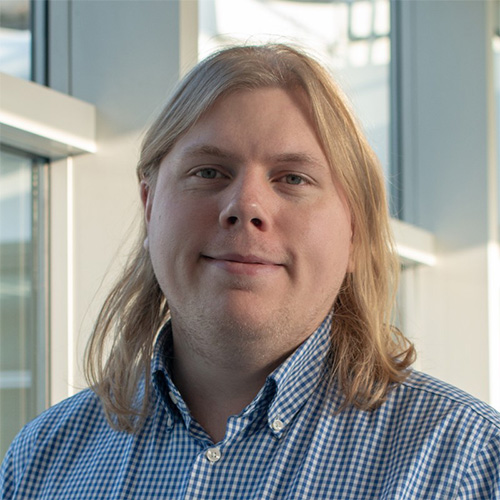We ‘Deep Dive’ with Jonathan Burnett, Technical Director of Hardware Engineering, Oxford Quantum Circuits, who tells us more about life inside and outside the office.

What would you describe as your most memorable achievement in the data centre industry?
Putting the first quantum computers into colocation data centres and data halls of High-Performance Computing (HPC) centres. Across 2022, we engaged with Cyxtera and Equinix to design OQC’s next generation of quantum computer for a data-centre environment. Through 2023, we finalised designs and deployed Toshiko, OQCs 32-qubit Quantum Computing platform into data centre environments.
Looking back, it’s amazing to have achieved and it feels like something which should have happened earlier. We learned a lot about the data centre industry as well as our own design interfaces.
What first made you think of a career in technology/data centres?
I have always had an interest in technology, sci-fi and computer games. As a kid this was a SEGA Megadrive and Amiga 1200. I brought these interests with me going into university to study physics and was first in my family to get a degree and then PhD. At that time, my interests in technology led to research that spanned quantum devices (qubits), cryogenics and microwave measurements.
Now, connecting that quantum background with traditional technology – computing, server architecture, graphics nodes and ultimately HPC is what really motivates me. Looking back this really connects my earlier interests in technology/computing and my experience with science.
What style of management philosophy do you employ with your current position?
In my previous scientific career, I became frustrated with risk averse plans and obsession over detail – a common outcome of this is that the detail obsession is a risk that doesn’t get called out and gets covered by overly conservative plans.
My philosophy now is very much the opposite of this, acknowledge and call out the risks, especially on things like in-action. I find this helps to de-risk the language around the technical challenges which in turn lets us query the ambition in our plans. With this in place, act with empathy on the challenge and try to protect the team’s headspace.
What do you think is the current hot talking point within the data centre space?
Quantum Computing of course, or more specifically the integration of Quantum Computing with modern digital infrastructure.
How do you deal with stress and unwind outside the office?
When encountering stress, I find it’s useful to reflect and remind myself of the positive aspects – I work in a field that I love, that I have wanted to work in for a long time and ultimately that I want to be in. Realising you are where you want to be, can be a great source of strength.
Of course, there is still a need to unwind. I enjoy getting lost into computer games – most recently Alan Wake 2. Also, I have a corgi that’s supportive in his own way.
What do you currently identify as the major areas of investment in your industry?
Probably the broad topic of R&D. However, across the industry this will mean slightly different things – it can mean more engineers, or it could mean more hardware, or even facilities.
What are the region-specific challenges you encounter in your role?
The global supply chain presents a range of region-specific challenges. Some of these range from the supply chain traditionally serving academic customers which were low-volume, low-communication and sporadic. Consequently, suppliers do not have the information or relationships to level up to meet the demands of industrialising Quantum Computing. On top of this, you then have additional region challenges from time zone, convention and culture.
What changes to your job role have you seen in the last year and how do you see these developing in the coming months?
A scaling challenge of Quantum Computing which is close to my role is the operationalising of technology which has R&D elements. If you compare it to traditional computing, which has many layers between an IC design engineer vs. application engineer vs. a data centre hosted smart/remote-hands, quantum computing still has many of these roles sitting within the same company or even team. As much as the technology will progress via R&D, the product which is ultimately a service will also mature to align with the strongest SLAs that traditional computing considers normal.



